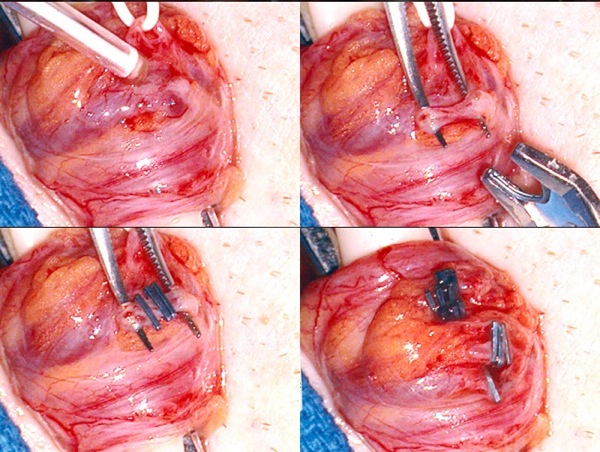I’ve always been frustrated by the default WordPress search engine. All too often when I entered search terms to test it, I got Mal the error duck. Somewhat charming at first, Mal quickly became pretty frustrating. I could only imagine how frustrating it must have been for the readers of this blog to get the information they want. I spent a few hours researching better search tools and finally decided to install Relevanssi. I’ve tweaked it and tested it, and it seems to work pretty well. Let me know what you think!
Search Away!
December 30th, 2012 § Comments Off on Search Away! § permalink
Diet and Sperm
December 3rd, 2012 § Comments Off on Diet and Sperm § permalink
Many men ask me about diet and sperm, and I’ve written about it previously in this blog. The same scientists that suggested then that lower intake of carbohydrates, fiber, folate, vitamin C and lycopene and a higher intake of protein and total fat had worse sperm than men with the opposite diet recently studied the semen analyses of men on two different diets, a Western
one with lots of red and processed meat, refined grains, pizza, snacks, high-energy drinks and sweets, and a Prudent
one with enriched in fish, chicken, fruit, vegetables, legumes and whole grains. Men with the Prudent
diet had better swimming sperm.
So, if you’re looking for a “sperm friendly” diet, eat more fish, chicken, fruit, vegetables, legumes and whole grains, and less red and processed meat, refined grains, pizza, snacks, high-energy drinks and sweets, But don’t drive yourself crazy. A pizza or burger now and then keeps you sane.
Welcome, Doctor Hotaling!
November 28th, 2012 § 2 comments § permalink

We welcome Doctor Jim Hotaling as a contributor to Maledoc. Doctor Hotaling is a male infertility specialist with interests in erectile dysfunction, surgical innovation, epidemiology of infertility, and the statistical genetics of male infertility. He graduated magna cum laude from Dartmouth with majors in chemistry and history, completed medical school at Duke in 2006, and finished a six year urology residency at the University of Washington in 2012. His goal is to expand the scope of genetic tests available to enable patients and physicians to understand what causes male infertility. He’s also studying how bicycle riding contributes to erectile dysfunction and how to solve that problem with engineering. Welcome, Doctor Hotaling!
Varicose Veins in the Scrotum: Rx
May 25th, 2012 § 17 comments § permalink
Mr. Smith asked me to explain the different methods of treating varicose veins in the scrotum known as a varicocele. There are a few:
- A surgeon makes a small incision in the groin, and ties or clips the veins. The surgeon may use an operating microscope or wear glasses with magnifying lenses to preserve small arteries supplying blood to the testis.
- A surgeon uses a telescope called a laparoscope to find the veins inside the abdomen and tie or clip them.
- A radiologist threads a small tube through the veins and injects material to plug them.
Most surgeons who specialize in male fertility prefer to use an operating microscope or wear glasses with magnifying lenses to perform the procedure, but excellent results can be obtained with either laparoscopy or radiology. A man should ask his doctor about his or her experience, what he or she prefers and why.
This series of pictures shows what the procedure looks like under the operating microscope. The surgeon uses a small probe to listen to the veins as they sound different than arteries. In this procedure, titanium clips were used to block the veins, but surgical suture can also be used.

Thanks, Mr. Smith, for asking a great question!
SpermCheck is Here!
February 21st, 2012 § 13 comments § permalink
SpermCheck has arrived and is filling the shelves of your neighborhood drug store as I write. What is it? It’s an over-the-counter FDA approved home male fertility test. What does it do? It tells you whether you have more than 20 million sperm per milliliter of semen.
That’s a good thing, right? Generally, yes. It’s good to know whether you have a reasonable amount of sperm, which SpermCheck says is 20 million per milliliter. The problem is in the yes-or-no nature of the test and in picking the number 20 million. As I described in this post, you can get a woman pregnant with sperm counts less than 20 million per milliliter and have problems with more than that amount. The numbers of swimmers don’t tell the whole story.
So, will SpermCheck help you? For most men, probably. Having a positive or negative result will point them in the right direction. But for the handful of guys that get the OK from the test when they have a problem or for those that get the thumbs-down from the test that are fertile, it’s not telling the whole story. According to the manufacturer, the guys that are getting it wrong is about one in twenty. If you’re OK with that, great–if not, you may want to see a doctor.
